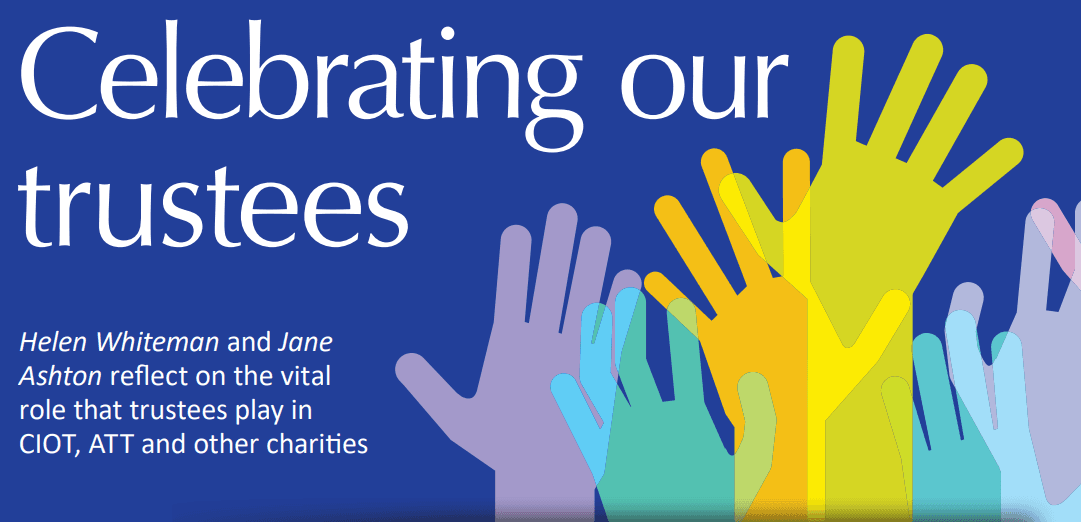Trustees Week

Trustees’ Week is an annual event which showcases the work of trustees across a wide range of charities and provides an opportunity for others to learn more about the role of being a trustee and the difference it can make to society. Between the CIOT and ATT, our two Councils have 25 and 17 trustees respectively. Our trustees are selected and appointed through an independent nominations process, which is open to all members. This feature showcases just a few of our trustees, citing the ways in which they have contributed to the strategy of both charities and what they find most rewarding. As Chief Executives, we are accountable to our Councils, with the Presidents being our line managers. The slightly unusual arrangement, compared with ‘normal’ organisations, is that this changes annually for us, when the Deputy President becomes President and so on. But both Councils have a clear purpose, vision and mission, supported by a strategy which we deliver through each of our business plans.
The joy of working with trustees is that we benefit from the knowledge and skills from a wide range of backgrounds and experiences. The decisions that trustees are asked to make are in the interests of our respective charitable objectives. And trustees are able to work as a collective, providing challenge and scrutiny to ensure those decisions are informed and appropriate.
Many members, students and volunteers may already be trustees for other charities. If you are interested in becoming a trustee – for us, or for another charity – then there are a lot of helpful sources of information, some of which we have listed in the box on the right. Becoming a trustee is an opportunity to benefit wider society. In return for sharing your time, skills and experience, you can also use the role to learn new and useful skills. There are various oversight charity regulators, such as the Charities Commission, who maintain charity lists, provide guidance and support to charities, hold them to account and ultimately ensure that the public can have confidence when choosing to support a charity.
Click here to view the full article
